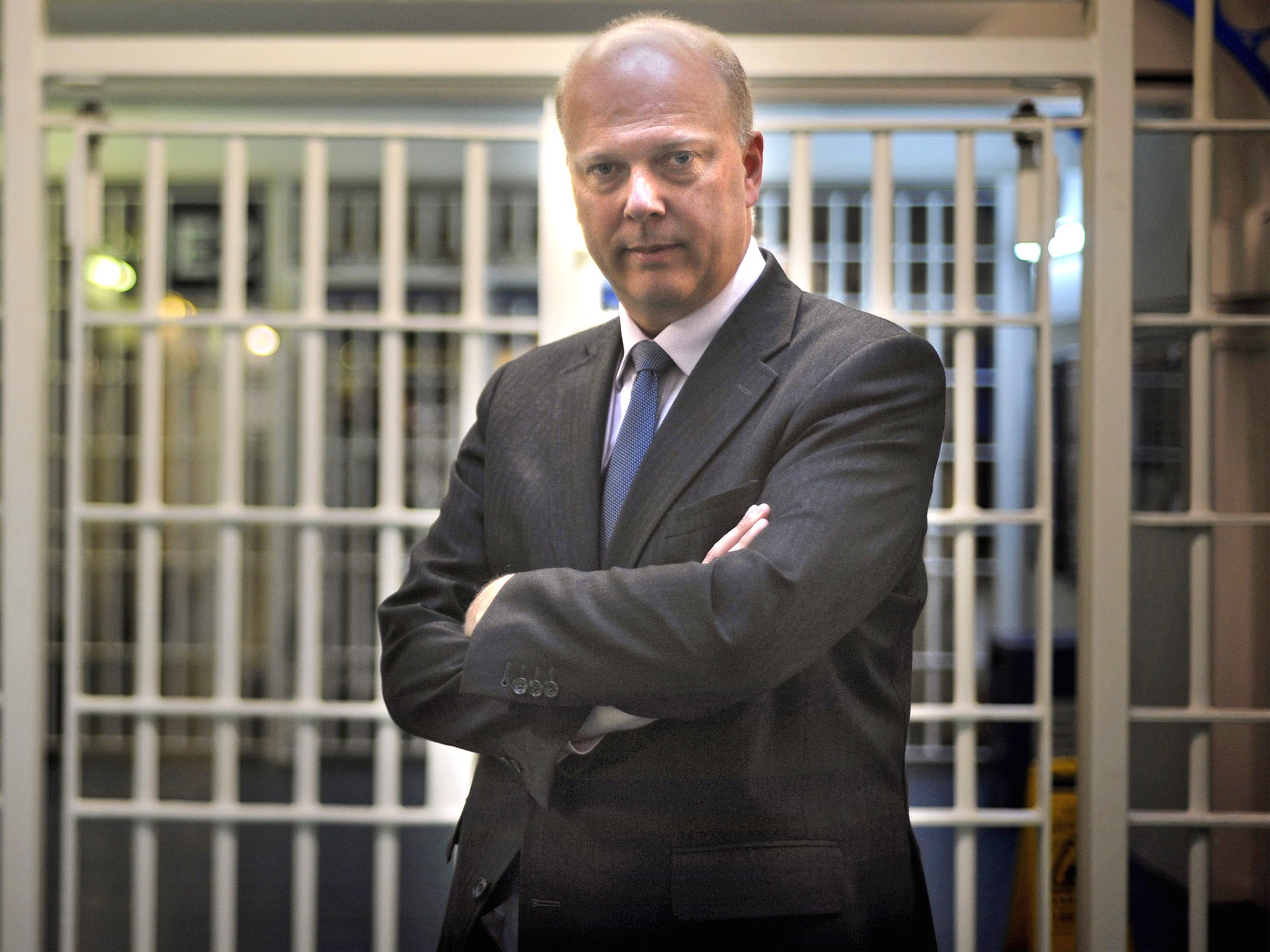Why critics fear that the Government’s cost-cutting legal aid plans could force the innocent to plead guilty
Solicitors should not hold their breath if they think an incoming Labour government will ride to their rescue

Your support helps us to tell the story
From reproductive rights to climate change to Big Tech, The Independent is on the ground when the story is developing. Whether it's investigating the financials of Elon Musk's pro-Trump PAC or producing our latest documentary, 'The A Word', which shines a light on the American women fighting for reproductive rights, we know how important it is to parse out the facts from the messaging.
At such a critical moment in US history, we need reporters on the ground. Your donation allows us to keep sending journalists to speak to both sides of the story.
The Independent is trusted by Americans across the entire political spectrum. And unlike many other quality news outlets, we choose not to lock Americans out of our reporting and analysis with paywalls. We believe quality journalism should be available to everyone, paid for by those who can afford it.
Your support makes all the difference.The criminal justice system will be destroyed because of a decision based on ideology rather than evidence.” These are words from a woman used to weighing her words carefully when presenting an argument, but Nicola Hill is not in an emollient mood.
As president of the London Criminal Courts Solicitors’ Association, she is at the forefront of a last-ditch attempt to halt new cuts to legal aid she claims will have a profound impact on access to justice.
Other critics even argue the impact of cost-saving plans by the Justice Secretary, Chris Grayling, will be to force the innocent to plead guilty.
The first wave of cuts came into force in civil courts last year, limiting the right of people to claim legal aid in an array of areas including family break-ups, immigration cases, housing disputes and medical negligence.
There is already evidence that numbers of civil cases granted legal aid in England and Wales have fallen by more than 60 per cent last year, which will help Mr Grayling hit his target of saving more than £300m a year.
Now the Ministry of Justice is targeting what it sees as fat-cat lawyers as it searches for further savings of some £215m from the criminal justice legal aid bill.
Its tactic is to attempt to cut the amount paid to law firms which undertake this work by 17.5 per cent and by requiring them to undertake a “block” of legal aid cases. In addition, defendants would lose the right to choose their solicitor.
The Government says defendants and people under investigation by police will notice no difference, but adds that it is committed to ensuring legal aid is “sustainable for those who need it, for those who provide legal services as part of it and for the taxpayer”.
Opponents say the move could drive hundreds of smaller solicitors’ firms out of business because they lack the resources to tender for large numbers of cases.
Cash-strapped companies could even be tempted to advise innocent defendants to plead guilty in cases where the evidence appears finely balanced, they claim.
Barristers were initially hostile to the plans, and mounted an unprecedented day of action in protest, but have since signed up to the proposals following some modifications by Mr Grayling.
But many solicitors, who make initial police station visits and prepare cases for court, remain up in arms about the overhaul. They believe they have found a belated way of holding up the moves as two solicitors’ associations launched a judicial review challenge to the changes.
They argue that Mr Grayling acted unlawfully by failing to release crucial details of consultation documents about the impact of cuts to legal aid, accusing him of trying to “bluff and bully” his changes on to the statute book.
He strongly denies the charges, arguing that the consultation was long and comprehensive and that all the key information was widely shared.
Some of the planned cuts are not scheduled to come into force until after the election and the effect of the judicial review could be to further delay the overhaul.
But solicitors should not hold their breath if they think an incoming Labour government will ride to their rescue.
Sadiq Khan, the shadow Justice Secretary, has argued the “vandalism of the justice system knows no bounds” and wants an overhaul of how legal aid is spent.
But that does not necessarily mean that an incoming Miliband government would suddenly loosen the purse strings.
Join our commenting forum
Join thought-provoking conversations, follow other Independent readers and see their replies
Comments